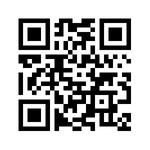

LEARNING EXPECTATIONS
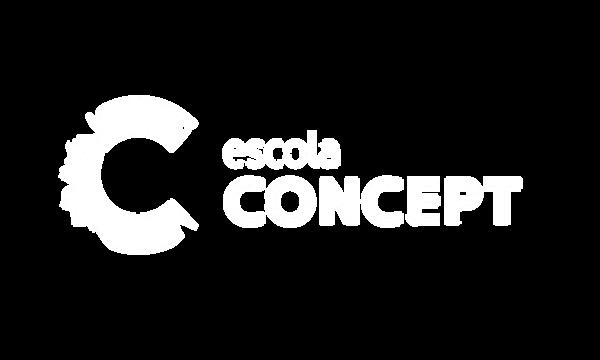
Escola Concept
offers an academically rigorous, challenging, inclusive, global education designed to develop happy and thoughtful human beings who positively impact the world we live in. The school's program is designed to nurture the dispositions of lifelong learners who collaborate to co-create, embrace an entrepreneurial mindset, understand the meaning of living sustainably, and are globally and digitally fluent. Learners apply habits of mind to their daily actions, use the language of thinking to communicate, and understand the elements of design thinking to problem solve and innovate. Learning is facilitated and assessed through relevant, projectbased experiences. Upon graduation, learners will be prepared for their university of choice in Brazil, or elsewhere around the world.

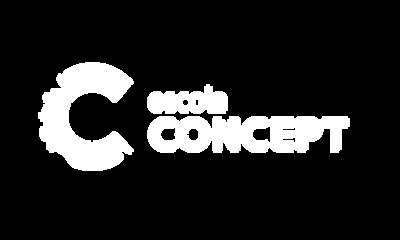
PER GRADE LEVEL
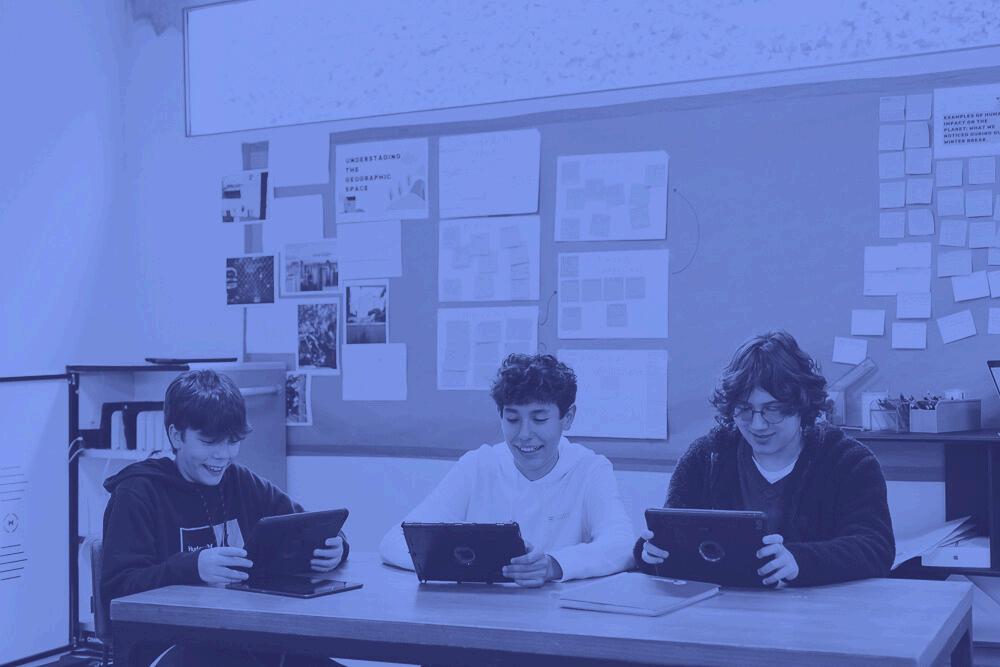
English Language
Deepen understanding of literary and informational texts through rhetorical, thematic, and critical analysis Write across genres and use language to express ideas with clarity and impact.
Portuguese Language
Critical analysis of texts from various domains, original writing with clarity and coherence, as well as debates emphasizing active listening, ethics, and social responsibility
Mathematics
Apply functions, statistics, and calculus fundamentals to real-world modeling and data interpretation
Develop analytical reasoning through complex problem-solving scenarios
Social Sciences
Analyze global sociopolitical shifts, power structures, and cultural perspectives Examine contemporary issues through history, geography, civics, and economics lenses.

PER GRADE LEVEL
Natural Sciences
Explore genetics, biotechnology, energy transformations, and environmental systems through inquiry, experiments, and scientific modeling.
Career & College Counseling Guide
The WAKE College & Career Counseling Manual offers a structured framework for post-secondary planning Using the WAKE model Wonder, Act, Know, Execute it guides learners in self-discovery, academic growth, and career exploration, ensuring a confident and purposeful transition beyond high school
AP - Advanced Placement
College-level courses and exams offered in high school that allow students to demonstrate mastery of subjects, earn college credit, and strengthen university applications
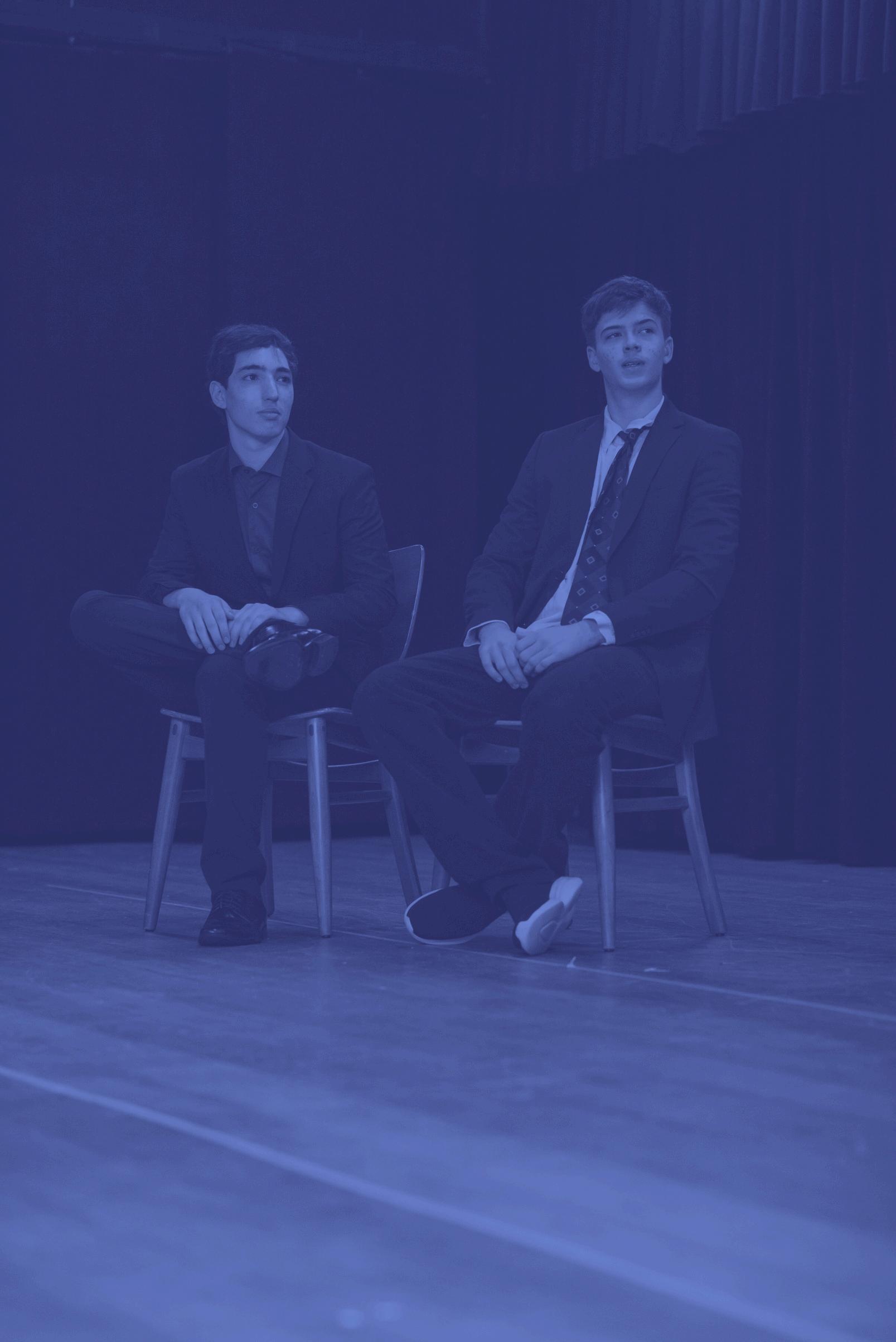

E N G L I S H L A N G U A G E
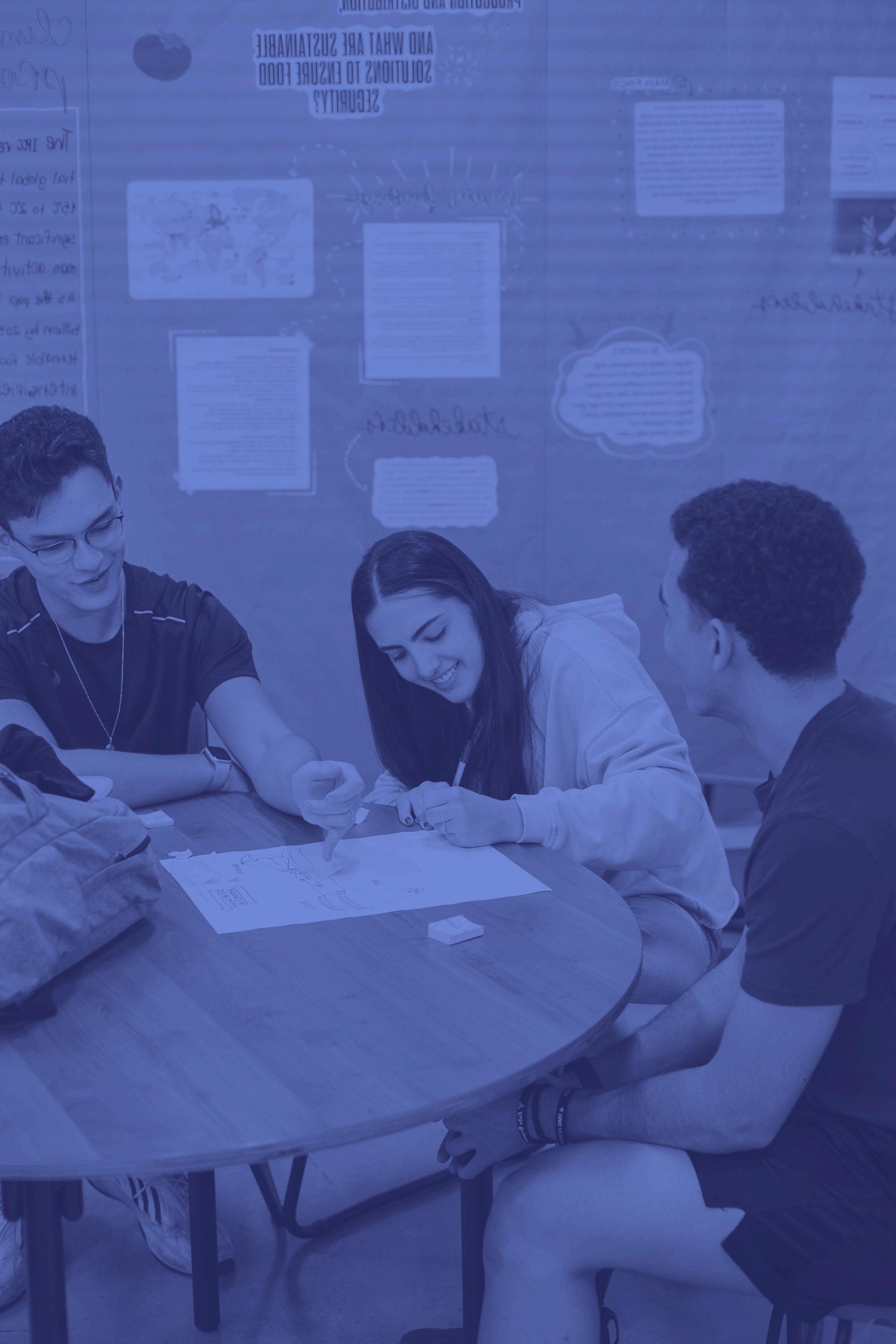

Curriculum Snapshot
U A G
Aligned with the Common Core State Standards (ELA) and AP English Literature & Composition, Grade 12 English Language Arts ensures rigor, continuity, and international comparability.
At Escola Concept, every Grade 12 learner engages with literary analysis, rhetorical interpretation, and original writing that blends creativity and academic rigor. Our model – Understand → Explore → Materialize – ensures learning is structured, applied, and meaningful
Course Overview
The Grade 12 English Language and Literacy course invites learners to reflect on the stories, texts, and ideas that have shaped their thinking, while imagining and composing the future they wish to create. Essential questions guide the course:
What kind of future do I imagine for myself and for the world? How do authors use language to reimagine reality, challenge norms, or envision transformation?
Students study a wide range of texts from speculative fiction to philosophical essays and multimedia works that explore identity, transformation, society, and legacy. Alongside literary study, learners compose original writing across genres and conduct sustained research projects. Emphasis is placed on critical analysis, creative expression, and rhetorical sophistication
E N G L I S H L A N G
Learning Structure
Each lesson follows Escola Concept’s three-phase model:
Understand: Introduce central concepts and essential questions.
Explore: Engage in text analysis, research, and writing tasks.
Materialize: Demonstrate learning through essays, presentations, and real-world applications

Content Areas
Literary Interpretation and Analysis:
Examine authorial craft, symbolism, and cultural context across genres and media.
Writing Across Genres:
Analytical, argumentative, narrative, and reflective writing with emphasis on structure, style, and rhetorical purpose.
Research and Synthesis:
Conduct sustained, inquiry-based projects using academic and digital sources with proper citation.
Rhetorical and Multimedia Analysis:
Evaluate tone, diction, structure, and visual language in political, legal, and public discourse.
Grammar, Style, and Vocabulary:
Apply advanced grammar, syntax, and diction to refine fluency, clarity, and rhetorical effectiveness
Competencies
By the end of Grade 12, learners will be able to:
Interpret complex texts and evaluate how authors use form, style, and structure to shape meaning.
Compose original work across genres with rhetorical precision and sophistication.
Conduct independent research and integrate multiple perspectives using academic conventions.
Deliver structured presentations and lead academic discussions with evidence and clarity.
Apply grammar, syntax, and vocabulary with control to enhance impact
Assessment and Student Work
Learners demonstrate progress through:
Literary analysis essays, research papers, and creative writing projects.
Socratic seminars, debates, and multimedia presentations.
Portfolios documenting growth in analysis, synthesis, and expression.
AP English Literature practice assessments and performance tasks
Scan the QR code to access the complete document for the English Language Arts Curriculum.
P O R T U G U E S E L A N G U A G E
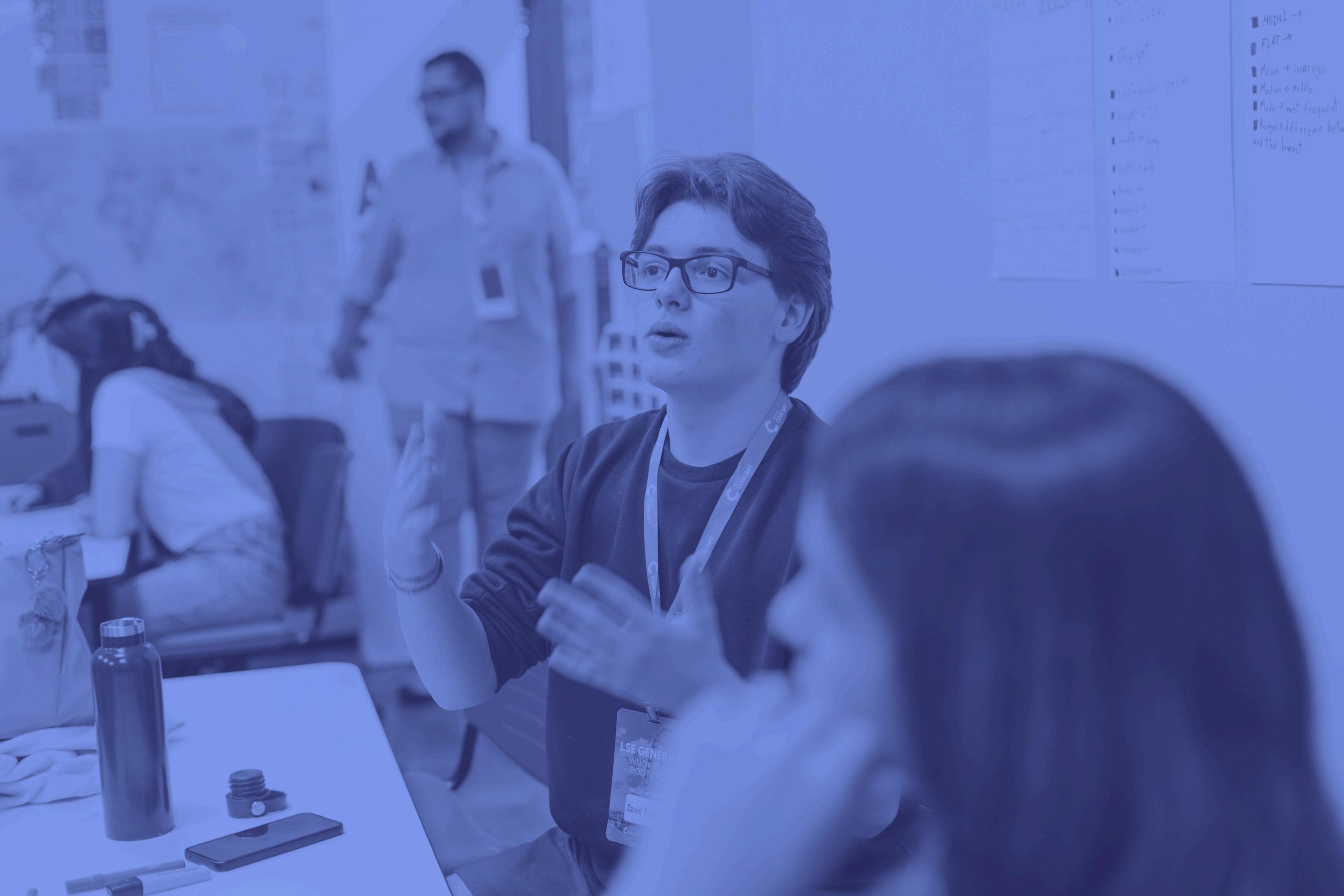

Curriculum Snapshot
Aligned with the Base Nacional Comum Curricular (BNCC) – Ensino Médio, Grade 12 Língua Portuguesa ensures rigor, continuity, and national alignment.
At Escola Concept, every Grade 12 learner consolidates discursive autonomy through reading, writing, oral communication, and multimodal authorship. Our model – Compreender → Explorar → Materializar – ensures learning is structured, applied, and meaningful.
Course Overview
The Grade 12 Língua Portuguesa course focuses on consolidating critical, authorial, and discursive competencies while preparing students for academic, professional, and civic life.
Students explore language as identity and power, engage with diverse discourses, and reflect on personal choices, social participation, and future perspectives. The course emphasizes authorship, argumentation, listening, and multimodal production as tools for active citizenship and social transformation. Learners will:
Produce oral, written, and digital texts with clarity and intention. Interpret complex discourses with critical, ethical, and cultural awareness. Position themselves argumentatively in different contexts. Apply research, curation, and synthesis in personal and collective projects. Communicate their life projects with coherence and authenticity
Learning Structure
Each lesson follows Escola Concept’s three-phase model:
Compreender: Guided study of texts, concepts, and contexts. Explorar: Critical analysis, debate, investigation, and experimentation with language.
Materializar: Production of authorial texts, collaborative projects, and public presentations

Leitura Crítica e Interpretação:
Analysis of literary, academic, political, and digital discourses, focusing on ideology, ethics, and aesthetics.
Produção Textual:
Argumentative essays, manifestos, proposals, academic writing, and creative texts; revision and adaptation.
Oralidade:
Debates, public presentations, project defenses, and democratic simulations.
Análise Linguística:
Study of linguistic variation, cohesion, coherence, argument markers, and critical evaluation of discriminatory discourse.
Multiletramentos e Cultura Digital:
Creation of multimodal content (podcasts, videos, campaigns) with ethical and social responsibility
Competencies
By the end of Grade 12, learners will be able to:
Produce texts with clarity, authorship, and stylistic awareness.
Interpret and evaluate complex discourses critically. Express themselves orally with confidence, ethics, and persuasion. Conduct research, curate information, and synthesize ideas in academic and civic contexts.
Create multimodal and digital content with social responsibility. Communicate their life projects through language and authorship
Assessment and Student Work
Learners demonstrate mastery through:
Essays, manifestos, and academic texts.
Debates, oral defenses, and public presentations. Digital campaigns and multimodal productions. Portfolios documenting research, analysis, and authorship. Collaborative projects with social and civic impact.
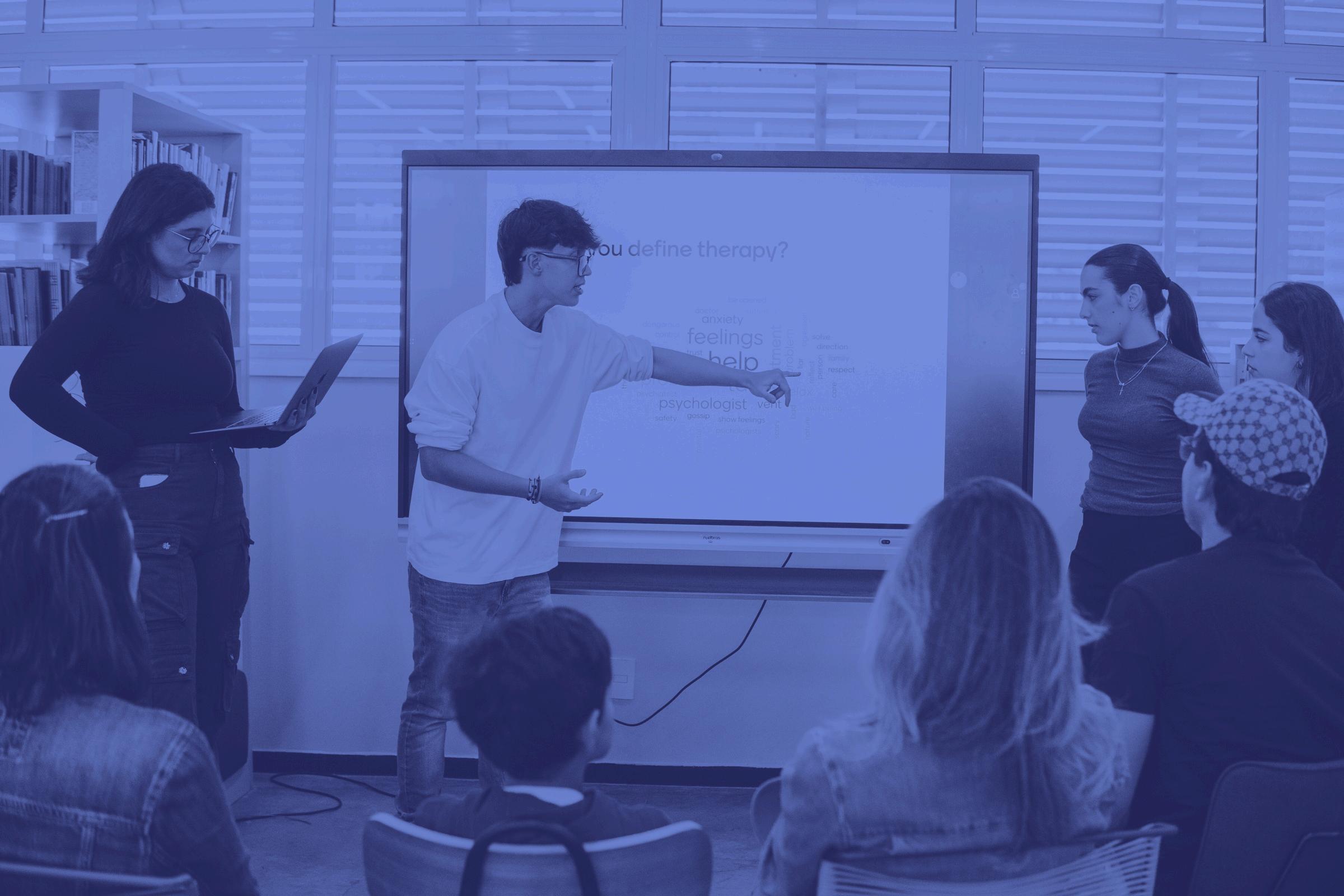

Curriculum Snapshot
Aligned with the AP Precalculus curriculum (College Board), the Base Nacional Comum Curricular (BNCC), and Illustrative Mathematics (IM), Grade 12 Mathematics ensures rigor, continuity, and international comparability.
At Escola Concept, every Grade 12 learner consolidates advanced algebraic, geometric, statistical, and calculus foundations. Our model – Understand → Explore → Materialize – ensures learning is structured, applied, and meaningful
Course Overview
The Grade 12 Mathematics course culminates secondary mathematics by integrating advanced algebra, functions, trigonometry, statistics, and introductory calculus.
Essential questions guide the course:
How can mathematical models represent, analyze, and solve complex realworld problems?
What is the role of functions, transformations, and limits in preparing for higher-level mathematics?
Students investigate polynomial, exponential, logarithmic, and trigonometric functions; study vectors, matrices, and coordinate geometry; apply probability and statistics; and are introduced to limits and rates of change as foundations for calculus. Emphasis is placed on problem-solving, reasoning, and modeling through AP-style tasks
Learning Structure
Each lesson follows Escola Concept’s three-phase model:
Understand: Introduction of mathematical concepts and problems through real-world contexts.
Explore: Practice with multiple representations (graphs, tables, equations, and models), collaborative problem-solving, and guided reasoning.

Materialize: Application through modeling tasks, real-world investigations, statistical projects, and performance assessments
Content Areas
Functions & Modeling:
Polynomial, exponential, logarithmic, and trigonometric functions; transformations and applications.
Sequences & Series:
Recursive and explicit models, summation notation, and applications.
Trigonometry & Identities:
Graphs, transformations, identities, and inverse functions.
Vectors & Matrices:
Vector operations, magnitude, direction, and matrix applications.
Coordinate Geometry & Polar Functions:
Conics, parametric equations, and polar forms.
Calculus Foundations:
Limits, average and instantaneous rate of change.
Statistics & Probability:
Data analysis, probability models, combinatorics, and inference.
Competencies
By the end of Grade 12, learners will be able to:
Analyze and model complex functions and their transformations.
Apply trigonometric identities and solve problems involving periodic behavior.
Represent and solve problems with vectors, matrices, and coordinate systems.
Interpret real-world situations using probability and statistics.
Understand and apply limits and rates of change as calculus foundations.
Communicate mathematical reasoning with precision and multiple representations
Assessment and Student Work
Student progress is documented through:
AP-style problem sets and written justifications.
Projects applying functions, modeling, and statistics.
Trigonometry and vector-based problem-solving tasks.
Research and presentations connecting mathematics to global contexts. Portfolios documenting growth in reasoning, modeling, and proof
S O C I A L S C I E N C E S
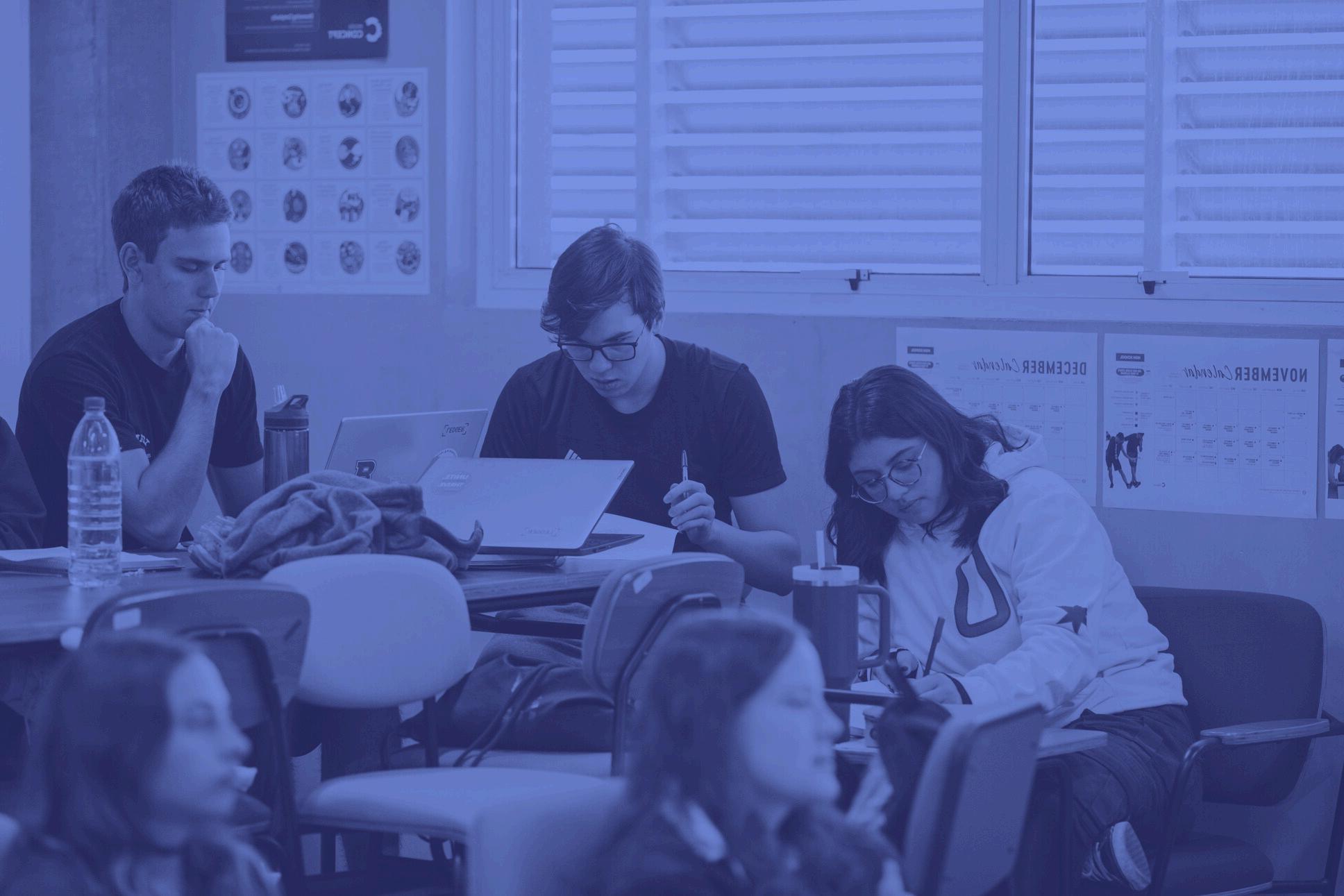

Curriculum Snapshot
Aligned with the Base Nacional Comum Curricular (BNCC) and the National Council for the Social Studies (NCSS), Grade 12 Social Sciences ensures rigor, continuity, and international comparability.
At Escola Concept, every Grade 12 learner explores contemporary global challenges, ethical leadership, and civic engagement. Our model – Understand → Explore → Materialize – ensures learning is structured, applied, and meaningful
Course Overview
The Grade 12 Social Sciences course prepares learners to critically analyze and respond to pressing global, national, and local issues. Students study contemporary history, civic participation, economic systems, cultural transformations, and environmental sustainability. Essential questions frame the course: How can we address global challenges through ethical leadership and civic responsibility? What roles do governance, economy, culture, and social movements play in shaping our present and future?
Students examine democratization, globalization, inequality, and climate change, while developing strategies for civic action and policy solutions. Learning emphasizes policy analysis, critical debate, and interdisciplinary inquiry.
Learning Structure
Each lesson follows Escola Concept’s three-phase model: Understand: Introduction of historical and political concepts through guided inquiry. Explore: Research, case study analysis, and structured discussions. Materialize: Application through projects, debates, and policy-based problem-solving tasks.

Content Areas
History:
Contemporary Brazilian and global history (19th–20th century), democratization, social movements, economic transformations.
Geography:
Global challenges climate change, sustainable development, urbanization, and geopolitical conflicts.
Civics:
Democratic and authoritarian systems, governance, international organizations, human rights, activism, and civic participation.
Economics:
Globalization, trade, finance, inequality, poverty, and sustainable growth.
Cultural Studies:
The impact of media, technology, globalization, and social movements on identity and public discourse
Competencies
By the end of Grade 12, learners will be able to:
Evaluate democratic and authoritarian systems and their impacts.
Analyze historical transformations and global interdependence.
Propose civic and policy solutions to social, economic, and environmental issues.
Interpret data and geographic information to assess sustainability.
Critically evaluate the role of media, identity, and activism in shaping societies.
Assessment and Student Work
Learners demonstrate mastery through:
Research projects and policy papers
Simulations of civic engagement and global institutions.
Analytical essays and case study reports.
Multimedia advocacy campaigns.
Portfolios documenting inquiry, critical reasoning, and collaborative projects.
N A T U R A L S C I E N C E S
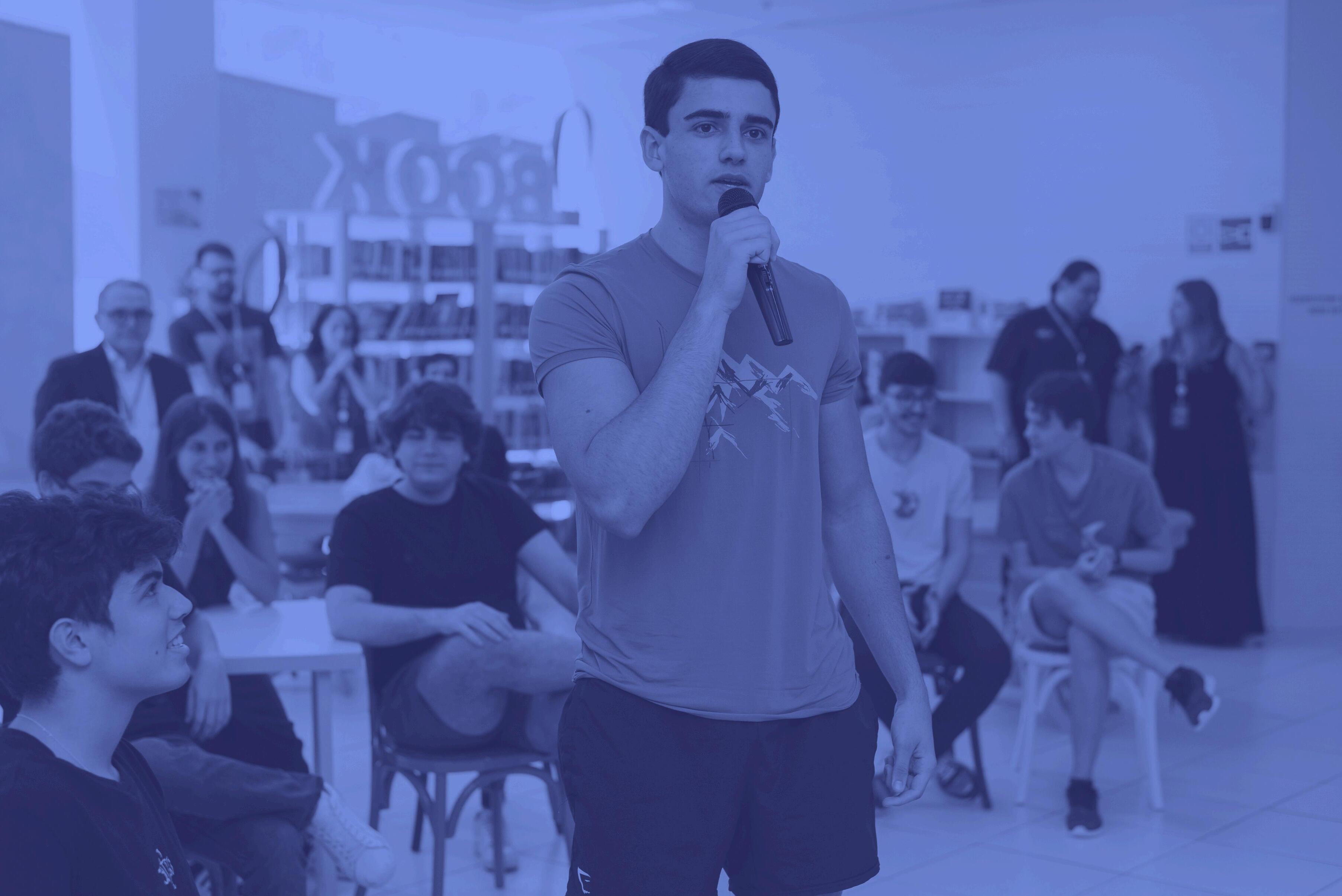

Curriculum Snapshot
Aligned with the Base Nacional Comum Curricular (BNCC) and the Next Generation Science Standards (NGSS), Grade 12 Natural Sciences ensures rigor, continuity, and international comparability.
At Escola Concept, every Grade 12 learner consolidates advanced scientific knowledge across physics, chemistry, biology, and environmental science. Our model – Understand → Explore → Materialize – ensures learning is structured, applied, and meaningful
Course Overview
The Grade 12 Natural Sciences course provides students with advanced scientific foundations and interdisciplinary applications, emphasizing independent research, ethical reasoning, and global challenges.
Essential questions guide the course:
How can science help us address pressing global and technological challenges?
What are the ethical and social implications of advanced scientific knowledge?
Learners conduct research, analyze data, and explore applications of physics, chemistry, biology, and environmental science. The course emphasizes sustainability, health, biotechnology, and critical engagement with contemporary science
Learning Structure
Each lesson follows Escola Concept’s three-phase model:
Understand: Introduction of scientific concepts and theories through guided exploration.
Explore: Laboratory investigations, collaborative problem-solving, and case studies.
Materialize: Application through research projects, presentations, and scientific investigations.

Content Areas
Physics:
Advanced mechanics, electromagnetism, quantum physics, and nuclear energy.
Chemistry:
Organic reactions, electrochemistry, energy systems, and analytical techniques.
Biology:
Physiology, microbiology, genetics, evolution, and biotechnology.
Human Health & Environmental Science:
Epidemiology, medical innovations, sustainability, and conservation.
Scientific Communication:
Research writing, peer review, and interdisciplinary collaboration.
Competencies
By the end of Grade 12, learners will be able to:
Design and execute interdisciplinary scientific research
Apply advanced principles of matter, energy, and life sciences to real-world contexts
Evaluate environmental and health data to propose sustainable solutions.
Interpret and communicate scientific findings using academic conventions.
Reflect on ethical and social implications of scientific and technological advancements.
Assessment and Student Work
Student progress is documented through:
Capstone research projects integrating multiple disciplines.
Laboratory reports, data analysis, and computational modeling
Presentations, debates, and scientific publications
Portfolios documenting inquiry, reflection, and growth.
Peer review and interdisciplinary collaboration.
C A R E E R & C O L L E G E P R E P A R A T I O N
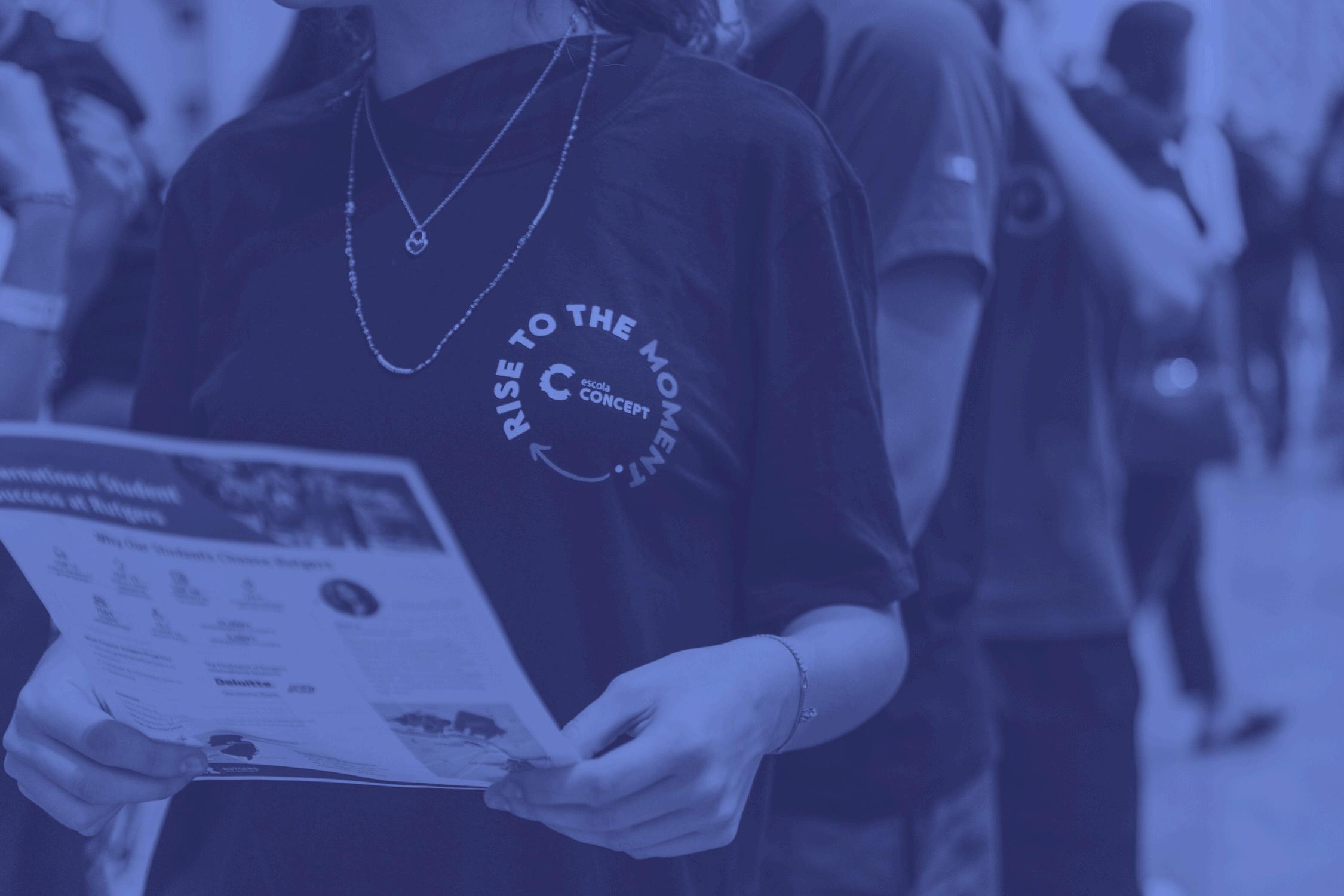

The WAKE College & Career Counseling Manual
is a roadmap to help learners, families, and educators navigate post-secondary planning with confidence. Guided by the WAKE framework Wonder, Act, Know, Execute it empowers learners to explore their aspirations, build the skills and knowledge needed for success, and take ownership of their future. More than a guide, it is a living document designed to support self-discovery, academic growth, and career exploration, ensuring a purposeful and well-prepared transition beyond high school.
EXECUTE: Precision, Deadlines, and Deliverables
Grade 12 is about precision, execution, and accountability. Learners must successfully submit applications, complete final testing, manage multiple admissions systems (Brazil & global), and transition smoothly to their postsecondary pathway. This checklist ensures that every learner stays on track, meets deadlines, and optimizes their admissions outcomes.
C A R E E R & C O
Available Resources
Naviance – Academic & career planning tool for learners.
WAKE Academic Roadmap – Guides learners on key milestones per grade.
College Fairs & University Visits – Opportunities to explore global institutions.
Counselor Meetings & Workshops – Personalized guidance at each stage.
Know more about the Grade 12 Career & College Preparation here:

A D V A N C E D P L A C E M E N TA P
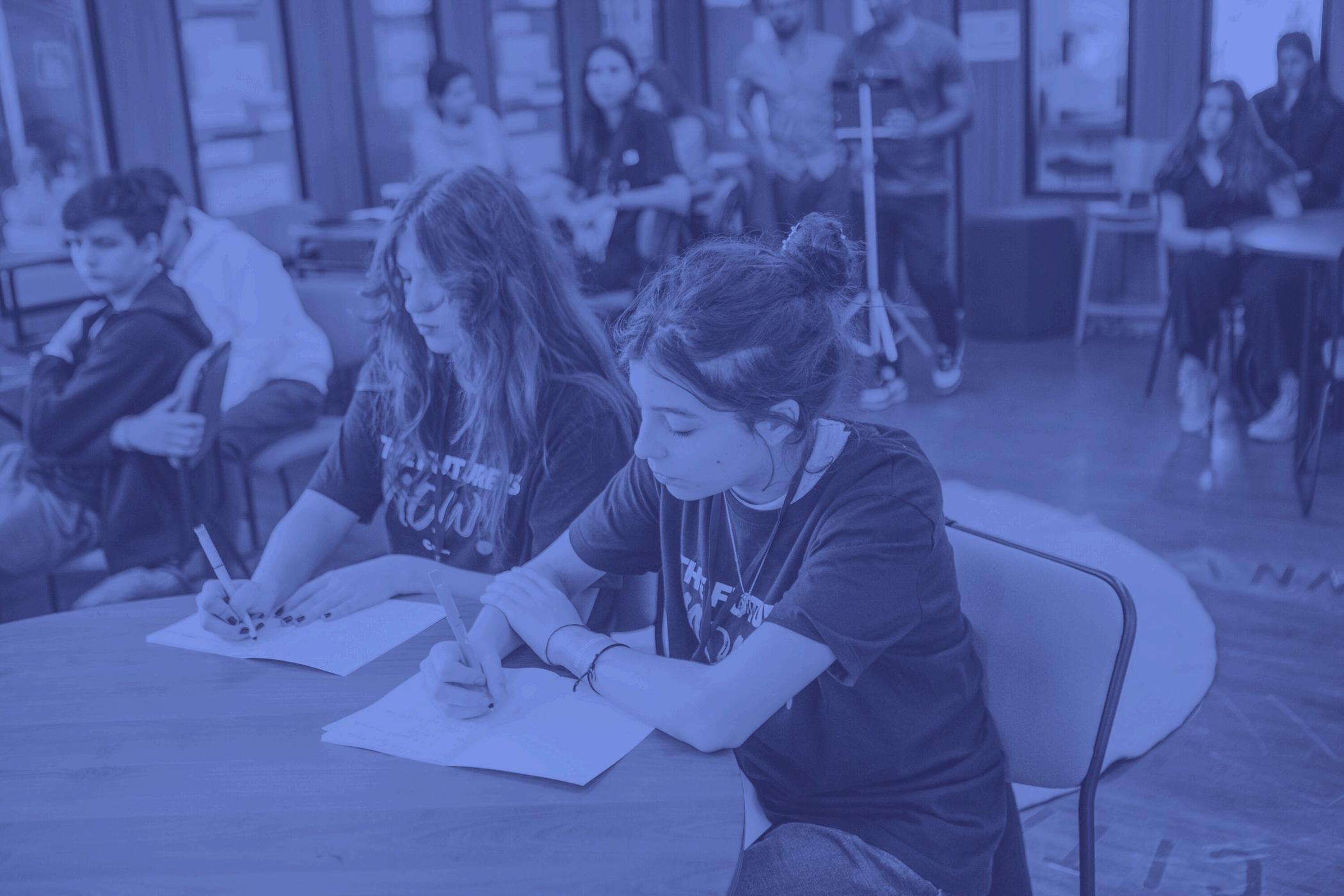

What is Advanced Placement?
Advanced Placement (AP) courses are college-level classes offered in High School that allow you to explore subjects in greater depth, challenge yourself academically, and potentially earn college credit. APs are recognized by universities around the world and help you stand out in applications for college, internships, and other opportunities.These classes are an opportunity to develop critical thinking, time management, and independent study skills all while discovering what truly inspires you.
Advanced Placement in Grade 12
In Grade 12, students take AP World History and AP English Language and Composition as part of their core. While taking the official AP exam is optional, all students will be learning the comprehensive AP course.
Also, in Grade 12 all students have the “voice and choice” in their course of study and will enroll in one “AP Honors Course” chosen from the following:
• Comparative Government and Politics
• Human Geography
D V A N C E D P L A
• Literature and Composition
• Biology
• Calculus
A
• Statistics
• Microeconomics
Available Resources xxxx
• Art & Design
Available Resources
AP classroom for students
Khan Academy AP resources
Know more about the AP Program
